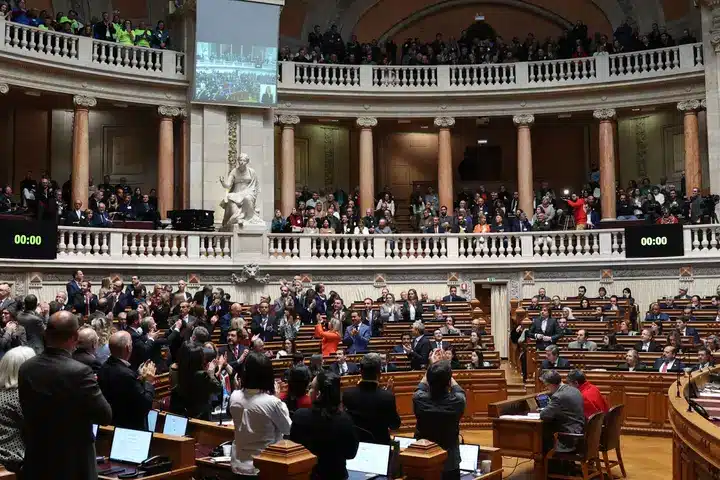Opposition accuses government of compounding crisis with communications blackout
In the aftermath of the nationwide energy blackout on Monday, Parliament is to debate the “vulnerabilities” of Portugal’s electrical system today, on the request of PCP communists – and at a point where opposition parties are heaping criticism on the outgoing government.
Tabloid Correio da Manhã focuses on this criticism this morning, saying it centres on the government’s response to the blackout, which Pedro Nuno Santos, secretary-general of the Socialist party, has wasted no time in lambasting – suggesting the executive failed to keep citizens updated, and essentially created a “communications blackout” on top of all the other problems.
The curious aspect to the Socialists’ attacks on their historic political opponents is that they also involved the relatively ‘disgraced’ former minister of infrastructures João Galamba who reappeared, initially via an opinion article in ECO, but then in interview with SIC, to stress that given the circumstances, the blackout could not have been avoided, either with the retention of a coal-powered power station, or with an electrical grid in national hands (rather than its current Chinese-majority ownership).
The fact that a unpopular politician with no engineering experience returned to the limelight to counter the affirmations of experts and electrical engineers who blame politicians for never having listened to their misgivings over Portugal’s energy policies somehow detracted from the force of Mr Galamba’s arguments, coming as they do before a new election campaign, in which his party (PS Socialists) is hoping to win back central power. But they have been widely publicised, nonetheless.
Mr Galamba’s certainty that Portugal would have been plunged into electrical limbo ‘whatever happened’ is clearly not something the government of Luís Montenegro is prepared to accept (see earlier story on moves underway), but it provides a ‘neat Segway’ to the issue of REN – the national power grid, which is not in national hands.
REN, explains Correio da Manhã tabloid today, is controlled by the Chinese state. Chinese group State Grid has held a majority shareholding in REN since 2012.
State Grid is “the largest company in the world” handling the distribution of electrical energy, says the paper. A quick consultation online confirms this, explaining that State Grid “operates in 51 countries worldwide”. Its primary focus is constructing and operating power grids, “ensuring a reliable and sustainable power supply”. As CM adds, State Grid is “controlled by the Chinese regime, dominated by the Chinese Communist Party of Xi Jinping”.
João Galamba clearly sees no problem with this situation, but more left wing political parties do: CM says today that Bloco de Esquerda’s Mariana Mortágua is calling for the nationalisation of REN, stressing “the sensitivity” of having an electrical grid under the management of “interests that are not the interest of the country”. PCP communist leader Paulo Raimundo believes the state “has to have its own back” when it seeks to respond to situations such as Monday’s, while PAN’s Inês Sousa Real has said that “it makes no sense” giving up the grid to “foreign hands”.
As CM stresses, China’s State Grid may have majority control of REN, but it only holds a 25% stake. The second largest shareholder is the family of Spanish clothing billionaire Amancio Ortega (“one of the richest men in the world”). Perhaps the greatest problem is that since 2014, the Portuguese state has had no stake at all in its own power grid.
For LIVRE, the other left-leaning party in opposition, the parliamentary commission proposed by the government (to start work only in the next legislature) should be starting ‘straight away’ – and the government’s management of Monday’s energy blackout was “not ideal”.
As criticism goes, this was perhaps the kindest of all ahead of today’s debate. ND




















